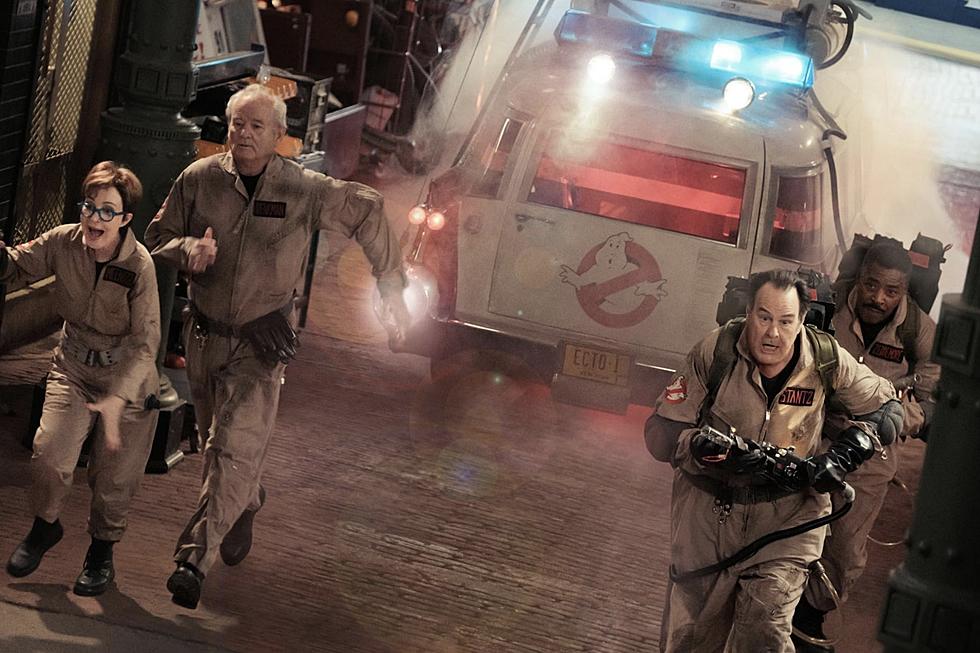
‘Aloha’ Review: You Didn’t Have Me at Hello
Cameron Crowe keeps remaking Jerry Maguire.
Elizabethtown. We Bought a Zoo. And now his latest movie, Aloha. Three times in a row Crowe has returned to the formula that yielded his biggest financial hit: A good-hearted screwup hits rock bottom and then redeems his disastrous professional mistakes by winning the heart of a great woman.
Crowe first presented this premise at the absolute peak of his creative powers. In 1996 he could basically do no wrong; he was, as far as Hollywood was concerned, the anti-Jerry Maguire. But each time Crowe repeats himself, his protagonist grows more and more autobiographical. It’s almost like he was waiting his whole life for this day to arrive, and now it’s finally here: Aloha may not be the worst movie Cameron Crowe’s made, but it’s easily the most baffling, both in the sense that it’s hard to believe a filmmaker this talented produced something this unsatisfying, and in the sense that a lot of it is just flat-out incomprehensible.
Let’s start with its hero: Brian Gilcrest, played by Bradley Cooper. In an opening voiceover, he explains his background: A career military man until the recession of 2008, he then fled for the private sector to work for Carson Welch (Bill Murray), one of the most powerful businessmen in the world. And then... well then it gets a little fuzzy (or a lot fuzzy). Brian worked for Welch in Afghanistan, where he fell into a dark depression, maybe committed a few crimes, and nearly died in a missile attack. A year later, Welch sends him to Hawaii — where Brian worked over a decade before — to assist in the launch of a new satellite, and also to convince some native Hawaiians to sign off on the construction of a new gate that’s being built on a site with spiritual importance to the local population.
The key missing detail in all of this is why: Why did Brian lose his way and why did Welch, who’s aware of all of Brian’s past misdeeds, give him a second chance? Why is Brian so important to the success of both the satellite and the gate? (And what does one has to do with the other?) Most importantly, why does Brian seem to know every single person in Hawaii, including the head of the Air Force Base (Danny McBride), his boss (Alec Baldwin), the pilot who flies Brian to the Air Force Base (John Krasinski), and the pilot’s wife (Rachel McAdams), who also happens to be Brian’s ex-girlfriend? Even Brian’s basic job description remains unclear; at various times in the film he plays the role of defense contractor, aeronautics engineer, surveillance expert, genius computer hacker, and negotiator with the local community.
Apparently, none of that’s important. All that really matters is that, in the words of one character, “Before it all fell apart, there was greatness in this guy” because, again, there was greatness in every Cameron Crowe protagonist before it all fell apart, and if only some endlessly supportive woman would see it, they could be great again. In Aloha, the restorative female presence is Captain Allison Ng (Emma Stone), Brian’s military liaison for the duration of his stay in Hawaii. Ng is another confusing character. She’s a straight-laced Air Force pilot who believes in the mission of the American military who also happens to be an endlessly optimistic dreamer prone to philosophical pronouncements about the beauty and importance of the sky (“If we can’t look up and see purity or promise, we are finished!”), and she’s a native Hawaiian (or at least one-quarter native Hawaiian) who cares deeply about the island’s customs. Stone looks absolutely radiant — at one point she even makes the ugliest hat in movie history into a bold fashion choice— but she’s so white she’s almost translucent, and thus a very curious choice to play the voice of traditional Hawaiian values.
A romance between Brian and Captain Ng is a foregone conclusion (she appears to be in love with him from the instant he lands in Hawaii), but they bicker and argue for a while, until they don’t. Random turns of events like that are not uncommon in Aloha, which feels like 60 percent of a movie — and the 40 percent that’s missing contained all the stuff that motivated the characters and explained their behavior. Brian and Captain Ng are in love, then they’re not. Brian is grumpy, and then he cheers up. Brian becomes a pariah, and two scenes later he’s a hero again. It’s as if Crowe left the outcome of every scene to the whims of a Magic 8 Ball.
The supporting characters are just as mysterious, and not in the these-people-are-deliberate-puzzles-for-the-viewer-to-solve sort of way; their behavior and actions make absolutely no sense. Carson Welch is just your average evil tech billionaire bent on world domination who never does any work, wanders around Hawaii, and also enjoys dancing to Hall and Oates. An entire subplot involving Krasinski and McAdams’ troubled marriage (supposedly sparked by Cooper’s return) appears out of nowhere, and vanishes again until the film’s final scenes. For a movie of seemingly simplistic aims — a rom-com with tropical flavor — it’s shockingly hard to follow.
In Aloha’s few lucid moments, Crowe emphasizes a theme of new versus old. It’s present in the U.S. military’s attempts to co-opt ancient Hawaiian rituals, the frequent dialogue references to “arrivals” and “departures,” and the wide age gap between Cooper (40) and Stone (26). But the thing that really feels old here is Crowe’s story, which he’s now trotted out at least four different times (or maybe five, if you count Say Anything). After a string of disappointments, his actual failures have finally caught up with his fictional ones; now he’s the good-hearted screwup in desperate need of redemption. Cameron Crowe’s been so consumed by the idea of failure for so long that he’s become the ultimate Cameron Crowe hero. Let’s hope his own return to glory comes just as quickly as it does for his characters.
More From ScreenCrush









